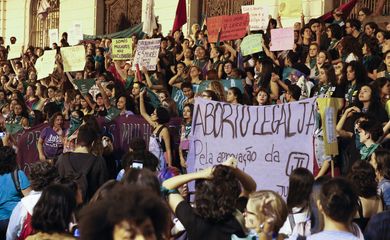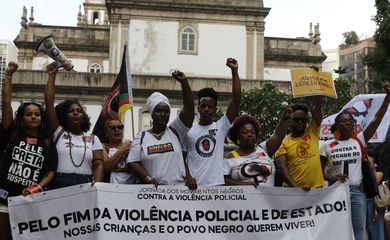Racism impacts health of black people in Brazil from birth to death

Black people display the worst indicators for employment, income, education, and political participation compared to their white counterparts, even though blacks account for 56 percent of Brazilians, statistics bureau IBGE reported. They are also subject to unfavorable rates of victimization by violence. Also, when it comes to health conditions, once again black Brazilians find themselves in a disadvantaged position, as the incidence of certain ailments and diseases is worse.

Data from a report dubbed Saúde da População Negra (“The Health of the Black Population”), presented by the Ministries of Health and Racial Equality, confirm that issues such as maternal mortality, access to prenatal examinations, and infectious diseases are more severe among the black population.
From birth to death
On Brazil’s National Day of Mobilization for the Health of Black People, celebrated on October 27, Agência Brasil heard the opinions of a number of experts. One explanation for the worrying data on the health of this portion of the population is racism.
Andrêa Ferreira, a researcher at Fiocruz in Bahia state, says there is a lot of evidence casting light on racism as a “structural, social determinant that conditions the lives of the black population.” In her view, prejudice plagues these people from before birth all the way to how they die.
“When we look at maternal mortality data, we know that the rates are higher among black women. When we look at mortality from external causes, for example, which includes accidents and firearms, it is concentrated on black people. Racism takes its toll by interfering with the possibility of one’s being born, growing up, and living,” the expert argued.
In Ferreira’s opinion, the COVID-19 pandemic made explicit how racism acts as a social determinant. “The pandemic was clear in showing how racism was present, determining who would be the people who had to leave social isolation to work, as well as who lived in densely populated houses, without access to water or sanitation: black people,” she said.
Ubiquitous racism
Lúcia Xavier is the founder of the NGO Criola, which advocates the human rights of black women. She agrees that one of the factors behind the poorer health rates among black people is racism also in health care services. She mentioned “a series of misconducted procedures.”
“[Black people] are given less information than they need. They are treated too quickly, when they need a little more time to understand and recognize the issues. Their complaints are not accepted as legitimate.”
Another aspect of inadequate reception and treatment, she went on to state, is that black people end up being blamed for the problems.
“Whatever might happen, they’re the ones responsible. If they get dengue, it’s because they didn’t get rid of stagnant water. If they get COVID-19, it’s because they didn’t take the necessary measures to protect their health,” she noted.
“Black people’s disease”
In a country where over 60 percent of AIDS-related deaths target black people—up from 52 percent in 2011—Xavier pointed out that infectious diseases are also a result of the discrimination that takes place in what should be a supportive environment.
“Infectious diseases are the result of social conditions, and they get worse because the system is unable to deal with this situation without discriminating. When it comes to sexually transmitted diseases, tuberculosis, or other illnesses of this nature, they are always blamed for having contracted the illness.”
Lúcia Xavier believes there is a form of racism in the treatment of genetic conditions, as in the case of sickle cell disease, which affects black people more often.
“The way care is provided and the efforts to preserve their lives are slow. It’s not worked on as eagerly. Sickle cell disease is really telling when we think of institutional racism.”
Public policies
During the release ceremony of the report, Brazilian Health Minister Nísia Trindade said that combating racism is part of the agenda of sustainable development and equity. “This agenda must be a perspective, and not an isolated theme, so that in all the initiatives of the Ministry of Health, from the Mais Médicos program to the Health Economic-Industrial Complex, the ethnic-racial dimension is, in fact, seen as a social determinant of health.”
The Ministry of Racial Equality told Agência Brasil it is “working to strengthen its National Policy for the Integral Health of the Black Population.”
“Among the commitments in the policy, it is worth highlighting the improvement in the registration of the race/color question in the information systems of [Brazil’s unified public health care system SUS], the care provided, including confronting institutional racism and adapting care to the most prevalent health problems facing the black population, covering sickle cell anemia, diabetes mellitus, hypertension, glucose-6-phosphate deficiency, and infectious diseases,” it said in a statement.






